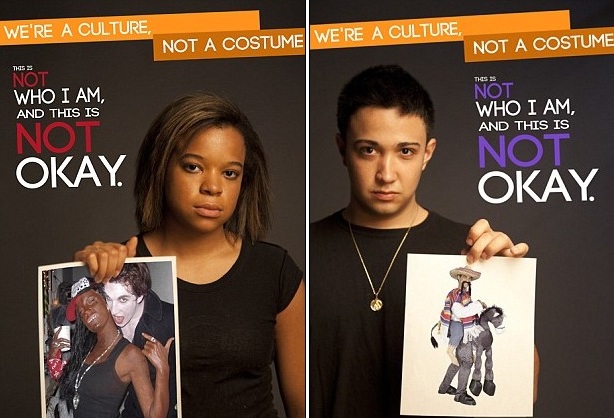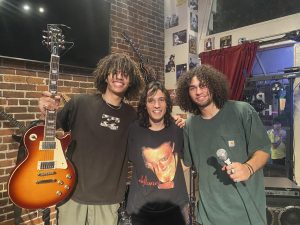I am a culture, not a costume
“We’re a culture, not a costume” poster campaign organized by Students Teaching About Racism in Society, STARS, from Ohio University.
October 14, 2014
Whether simple or elaborate, costumes are the key ingredient to a fun and memorable Halloween. Over the past several years, however, it has become a trend to appropriate and exploit minority cultures and traditions as a way to dress up on the one day a year it may seem okay to do so.
Halloween has become quite the problematic season, with one of the biggest issues being cultural appropriation. Many young people have claimed Halloween as an excuse to put on a costume that can be offensive and disrespectful, but refuse to take responsibility for it because it’s just a holiday.
“As long as you are tasteful, I don’t see anything wrong with dressing up and wearing a costume,” said Communications major and third year student Catherine McGinley, 20.
By repackaging a person of color’s tradition and culture into a costume, it signifies the theft and disrespect of that person’s life and struggles. With many people of color living in a predominantly white America, culture is often the only thing they have to call their own. Dressing up as minority culture for Halloween only to discard it the next day once its novelty has expired is an injustice that affects specifically people of color.
“You wear the costume for one night, I wear the stigma for life,” is the main quote for the 2013 “We’re a culture, not a costume” poster campaign, created by Students Teaching About Racism in Society, or STARS. This campaign depicts racially insensitive costumes that only help in perpetuating stereotypes and further racist mentalities.
Celebrities are one of the many culprits that are part of the costume problem. Every Halloween, celebrities appear in tabloids regarding their disrespectful Halloween costume choices. Examples include Julianne Hough in black face, who dressed up as Sue “Crazy Eyes” Warren from Orange is the New Black, Paris Hilton in Native American dress, and Josh Duhamel and Fergie as Mexican sugar skulls. These costumes are not only poor in taste, but disregard any sacred, religious, and cultural significance.
Halloween and the Mexican holiday Day of the Dead, or Día de los Muertos, are close in date, which may lead to believe that it is not a problem to dress up in traditional Mexican dress, including face painting as a sugar skull. Day of the Dead is a centuries-old holiday meant for mourning the deaths of loved ones and paying respect to deceased ancestors. Re-purposing the ornate, passionate, and traditional costumes of Día de los Muertos is not only derivative, but also disrespectful and erases the meaning and intent of the holiday.
“I can’t believe people have the audacity to dress up as my people because they feel it’s not a big deal,” said 21-year-old Criminal Justice major Jessica Gomez. “It’s one thing to appreciate a culture, but it’s another to disrespect them by using them as a costume.”
Halloween is one of the most entertaining seasons of the year that can bring together different types of people to enjoy each other’s costumes. It is essential, however, to be careful and respectful when deciding what costume to wear on Halloween.






